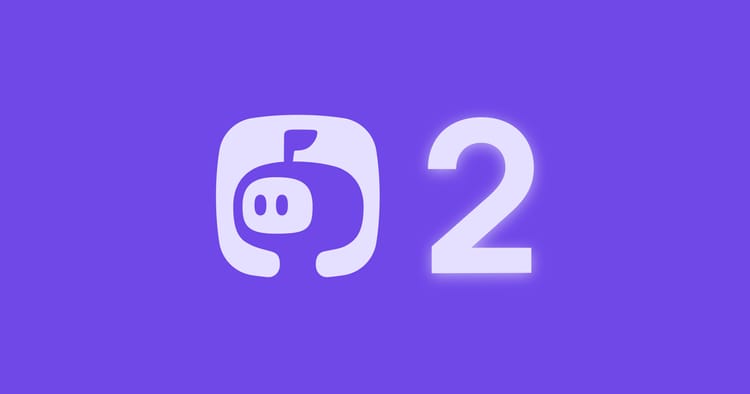Three successful entrepreneurs share their hiring secrets

I won’t mince words.
Hiring great talent is hard. You have to browse hundreds of applications, narrow them to a final few, and select one person at the end. That means rejecting many good employees. But, how do you decide who is a great candidate? How to measure it? What are the signs of great talent? There are tens of questions.
On top of it, the cost of a bad hire can be as much as $240,000.
Luckily, the most successful entrepreneurs have gone through the same journey and share what worked for them. They have cumulatively hired thousands of candidates and know what makes a great talent.
Here are their key hiring tips:
1. Marc Andreessen
Marc Andreessen founded Mosaic (the first widely used web browser), Netscape, and Andreessen Horowitz (VC firm). He has a knack for hiring star performers throughout his career. In this blog, he shares his secrets.
Marc focuses on three critical criteria:
- Drive
“I define drive as self-motivation—people who will walk right through brick walls, on their own power, without having to be asked, to achieve whatever goal is in front of them.”
How do you ensure the person has the drive? See what they have done. “Not been involved in, part of, or watched happen, or hanging around when it happened. I look for something you’ve done, either in a job or (often better yet) outside a job.”
For example: “The business you started and ran in high school.
The nonprofit you started and ran in college.
If you’re a programmer: the open-source project to which you’ve made major contributions.”
- Curiosity
“Curiosity is a proxy for, do you love what you do? Anyone who loves what they do is inherently intensely curious about their field, their profession, their craft.
They read about it, study it, talk to other people about it... immerse themselves in it, continuously. And work like hell to stay current in it. Not because they have to. But because they love to.
Anyone who isn’t curious doesn’t love what they do. And you should be hiring people who love what they do.
As an example, programmers.
Sit a programmer candidate for an Internet company down and ask them about the ten most interesting things happening in Internet software.
REST vs SOAP, the new Facebook API, whether Ruby on Rails is scalable, what do you think of Sun’s new Java-based scripting language, Google’s widgets API, Amazon S3, etc.
If the candidate loves their field, they’ll have informed opinions on many of these topics. That’s what you want.”
- Ethics
“Ethics are hard to test for. But watch for any whiff of less than stellar ethics in any candidate’s background or references. And avoid, avoid, avoid.
Unethical people are unethical by nature, and the odds of a metaphorical jailhouse conversion are quite low.
Priests, rabbis, and ministers should give people a second chance on ethics—not hiring managers at startups.
One way to test for an aspect of ethics—honesty—is to test for how someone reacts when they don’t know something.
Pick a topic you know intimately and ask the candidate increasingly esoteric questions until they don’t know the answer.
They’ll either say they don’t know, or they’ll try to bullshit you. Guess what. If they bullshit you during the hiring process, they’ll bullshit you once they’re on board.
A candidate who is confident in his own capabilities and ethical—the kind you want—will say “I don’t know” because they know that the rest of the interview will demonstrate their knowledge, and they know that you won’t react well to being bullshitted—because they wouldn’t react well either.”
Marc also shares how to run the hiring process:
- Write your hiring process and ensure the necessary people have a copy of it.
- Test the interviewee to do a basic skill set. For a writer, ask to write an article. For a designer, ask them to design one of your product’s features.
- Plan interview questions before the interview — and then refine them according to the position.
- Don’t ignore the little things during the interview process. These things create chaos once the person is on board.
“Person never laughs? Probably hard to get along with.
The person constantly interrupts? Egomaniac, run for the hills.”
- Pay attention to the little things during the conference calls.
“He’s great, super-smart, blah blah blah, but...”
“Sometimes wasn’t that motivated”—the person is a slug, you’re going to have to kick their rear every morning to get them to do anything.
“Could sometimes be a little hard to get along with”—hugely unpleasant.
- If you follow the above process, you’ll hire smart people. But, mistakes happen. Once you figure out the candidates aren’t working out, fire them.
2. Sam Altman
Sam is one of my favorite thinkers. He’s the former Y Combinator president and currently the CEO of OpenAI. At YC, Sam had the first seat to great teams at Airbnb, Stripe, Dropbox, and a dozen others. So he knows the key ingredients to a great team.
In this blog, Sam shares his advice on hiring.
- Spend at least a third and a half of your time hiring. “It sounds crazy, and there will always be a ton of other work, but it’s the highest-leverage thing you can do, and great companies always, always have great people.” Never outsource hiring until the company is 500 employees.
- Initially, get your hands dirty. Learn the role before you hire it. Else, either you’ll accept mediocre employees or reject great ones. For example, if you’re an engineer CEO, and hiring a designer, learn the key characteristics of a great designer. Then, ask your board or investors to opine on the final few candidates.
- “Look for smart, effective people. Talk to the candidates about what they’ve done. Ask them about their most impressive projects and biggest wins. Specifically, ask them about how they spend their time during an average day, and what they got done in the last month. Go deep in a specific area and ask about what the candidate did—it’s easy to take credit for a successful project. Ask them how they would solve a problem you are having related to the role they are interviewing for.
That, combined with the right questions when you check references, will usually give you a good feel about effectiveness. And usually, you can gauge intelligence by the end of an hour-long conversation. If you don’t learn anything in the interview, that’s bad. If you are bored in the interview, that’s bad. A good interview should feel like a conversation, not questions and responses.”
- Ask a candidate to perform a role. For programmers, ask them to write a code. For a sales rep, ask them to sell your product.
- Focus on the right ways to source candidates. Ask your investors and personal network of founders. Shortlist great candidates and work relentlessly to convince them.
- Have a mission to persuade great candidates and excel at selling it. (Why the person should take your offer instead of others’? Spoiler: Great team, working atmospheres, and other such perks aren’t a differentiator)
- Hire people you would want to work with on Sunday.
- Establish a strong culture in your company. Screen candidates for such values.
- Wait for great people instead of hiring mediocre ones.
- Offer generous salary + equity.
- Watch out for red flags. “A focus on the title is an example; a focus on things like “how many reports will be in my organization” is an even worse example. You’ll develop a feel for these sorts of issues very quickly; don’t brush them off.” Always trust your gut. If you feel there’s something off, don’t hire.
- Always be recruiting. “You have to view it as something you always do, not something you start when you need to fill a role immediately. There’s a fair amount of unpredictability in the process; if you find someone great for a role you won’t need for two months, you should still hire her now.”
- If, after a good observation, the candidate isn’t working, fire fast.
- Have everyone in your team talk with the candidates. Ask your team to share their opinions. “Be organized—one person should coordinate the entire interview process, make sure every topic you want to cover gets covered, convene people for the discussion after all interviews are done, etc. Also, have a consistent framework for how you decide whether or not to hire—do you need unanimous consent?”
- “Many founders hire just because it seems like a cool thing to do, and people always ask how many employees you have. Companies generally work better when they are smaller. It’s always worth spending time to think about the least amount of projects/work you can feasibly do, and then having as small a team as possible to do it.
Don’t hire for the sake of hiring. Hire because there is no other way to do what you want to do.”
3. Elad Gil
Elad Gil is a Venture Capitalist (investor in Airbnb, Coinbase, Instacart, Stripe, and other unicorns), author, and a former VP of Corporate Strategy at Twitter. In this blog, he shares how you should recruit and hire when you need to move fast.
(Useful for companies who want to scale their hiring from 10 people a year to 10 people a week)
- Write a job description for every role. Mention what your ideal candidate looks like and distribute the writing to the necessary people.
- Ask every candidate the same questions to judge them on identical parameters.
- Assign focus areas to interviewers before the interview. This is helpful when “you want to interview candidates for specific aspects of their role. For example, you might interview a product manager on their product insights, past accomplishments, culture fit, etc. Rather than have every person the candidate interviews with ask the same set of questions for every area, you could have three or four interviewers each focus on a different area that you assign to them before the interview. This will allow for an in-depth view of each area versus a shallow view of all areas.
Additionally, if you bring the person back for a second round of interviews, you can double down on areas of concern with more focused interviews.”
- Test candidates for their skills. Ask a marketer to create a marketing plan. Or a coder to write a code.
- Ask your interviewers to score candidates after every interview. Either, they can rank the candidate on a scale of 1-to-5 or answer “hire/no hire.” Accept/reject candidates based on the scores.
- Optimize for shorter times. Move quickly from interviewing candidates to offering/rejecting them.
- Preference-check everyone.
- Set up a process such that you interview diverse candidates. Ensure you avoid bias while interviewing them and provide benefits to support them.
Go through Paradigm’s white paper to build an inclusive organization.
Employees decide to what height a company will reach — so hire well.

Your employees will shape the company’s growth. They are the difference between a mediocre and a great organization. So, ensure you hire the right people. Use the above tips to get started.





